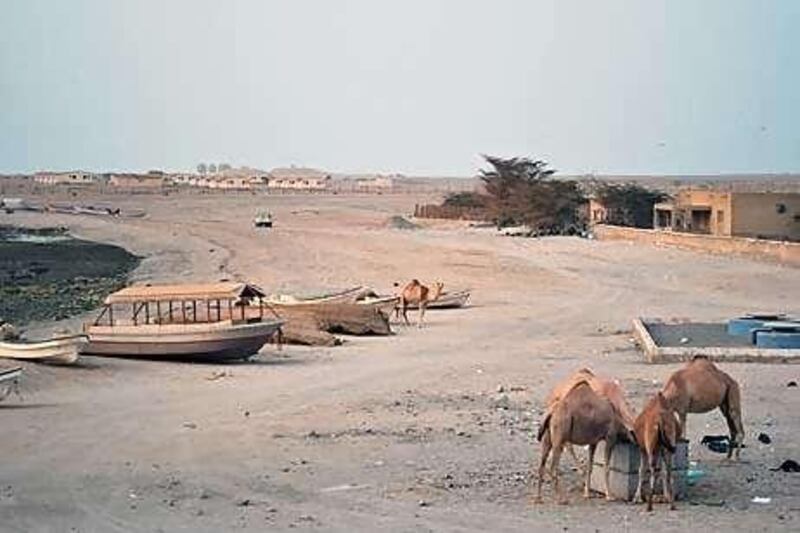MASIRAH ISLAND // A bridge planned to connect Masirah Island with mainland Oman will transform the local economy by boosting tourism after decades of isolation and poverty, local businessmen say.
Located off the south-east coast of Oman in the Arabian Sea, the island once attracted foreign military powers, both ancient and modern. Alexander the Great made the island his military base between AD 321 and AD 324. Much later in 1929, Britain's RAF established a base there, which was taken over by the Oman air force in 1977. Masirah Island has long remained unattractive to visitors despite the government's drive to attract tourists to Oman in the early 1990s, when local tour guides hoped business would pick up. But because of an unreliable ferry service and no commercial flights, Masirah remains isolated from the mainland and tourists are scarce.
That, islanders hope, will soon change. The Sultan of Oman, Qaboos bin Said, this month ordered a bridge built to connect the mainland with Masirah. The 40km bridge, which will be one of the four or five longest in the world when completed, will open in the first quarter of 2013, according to ministry of finance officials. A prominent Masirah businessman said that while the bridge would create employment opportunities through tourism, it would also boost trade and other sectors of the local economy.
Sinan al Saifi, 36, who owns a supermarket in the northern part of the island, said: "The bridge will put our businesses on the fast track, prices will be cheaper and bring all-around prosperity." Residents of the island said trade with the mainland was severely restricted because transporting goods is expensive. "The cheaper way to send or get goods from the mainland is using dhows but they are used mainly to transport smaller items such as food. Items like building materials and furniture need to come by ferry. That's why they are expensive to buy them here," Khamis Khalaf, 43, a resident in the island's main town of Ras Hilf, said.
Masirah has a population of 12,000, about one in five of whom are foreign workers employed by the air force and civil-work contractors, according to official statistics. Mr al Saifi said that hundreds of people commute to work daily by ferries to mainland towns such as Sur, Ibra and Ras al Hadd. "The bridge will encourage the opening of big businesses in the island, leading to a future construction of a civil airport and port as well as hotels so that young people can work here. Commuting to work now takes a quarter of their pay," Mr al Saifi said.
A one-way ferry trip with a car from Shannah town to the mainland costs 20 rials (Dh191), and the ferry runs only on high tides, according to visitors travelling there. Ferry rides can take up to 40 minutes depending on the roughness of the water. There are also speed boats that charge 3 to 4 rials per person that take only half the time, but there are very few in operation. Despite the island having white sand beaches, clear water for snorkelling and being home to rare loggerhead turtles, only about 2,000 to 3,000 tourists visit every year, out of the million tourists Oman receives annually, tour operators said.
Abdulwahid al Harthy, a tour operator working for Desert Dunes in Muscat, said: ""The bridge will mean driving straight to the island, cutting down on expensive ferry trips, which are not reliable, anyway. That way, foreign visitors will pay much less to travel to Masirah on comfortable holiday coaches. The bridge will also encourage domestic and GCC tourists who prefer to drive themselves." Many of the tourists who do have the patience to visit Masirah pitch tents on the beach to watch turtles nesting during the night, and surf and snorkel during the day. But the island's few hotels are either uncomfortable or too expensive because of lack of choices, Mr al Harthy said.
The bridge would also serve Masirah's residents in severe tropical storms. Last month, typhoon Phet directly hit Masirah and thousands of its residents had to be evacuated. Before that, cyclone Gonu, which devastated Oman in 2007, completely cut out the island from the rest of the country for days, with rough seas and high winds that made relief efforts nearly impossible. @Email:sshaibany@thenational.ae





